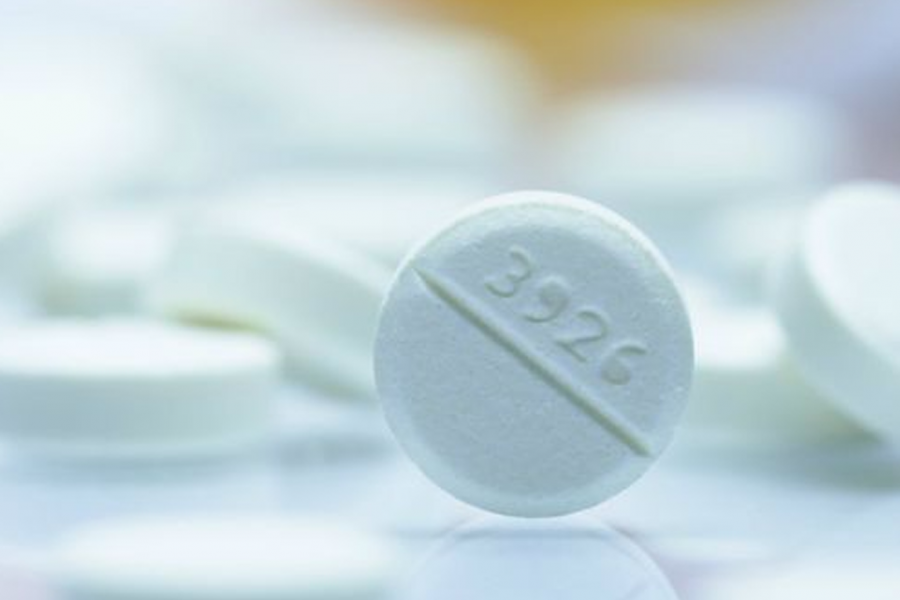Klonopin addiction treatment typically focuses on detox and helping the affected individual learn to live without having the drug. Rehab facilities can give recovering users all they need to help sort out the hidden problems leading to their addiction.
For a user to overcome a Klonopin addiction, they will need to go through several treatments, which can help them with the physical and psychological elements of addiction. People suffering from a Klonopin addiction will start experiencing withdrawal symptoms roughly one or two days after taking the last dose of the drug. A majority of users will experience restlessness, depression, mood swings, and some degree of anxiety. Depending on the severity of Klonopin withdrawal, the symptoms experienced can be fatal for the user.
Heavy Klonopin users are strongly advised to go through medically supervised detox, during which medical professionals can help them taper off Klonopin safely to reduce withdrawal symptoms and prevent complications. After detox, support groups and therapy sessions are involved for the recovering user to help them deal with any co-occurring mental disorders and drug cravings. To overcome a Klonopin addiction, the user has to deal with the underlying causes of their addiction first. This is because when you only address the Klonopin addiction without dealing with the person’s triggers, there is still a possibility that the addiction will resurface again. After all, the roots are still intact. Dealing with the user’s addiction triggers helps overcome the addiction for good.
Cognitive Behavioral Therapy (CBT)
 This type of therapy is used in Klonopin addiction treatment programs to help recovering users identify the things, places, and people that their minds link to drug use. Additionally, therapists can help clients closely monitor patients’ conscious and unconscious thoughts regarding their Klonopin use to help them treat the hidden causes of their addiction. After the user can determine the trigger situations that push them to use Klonopin, this can help them develop a plan of action for when they get drug cravings.
This type of therapy is used in Klonopin addiction treatment programs to help recovering users identify the things, places, and people that their minds link to drug use. Additionally, therapists can help clients closely monitor patients’ conscious and unconscious thoughts regarding their Klonopin use to help them treat the hidden causes of their addiction. After the user can determine the trigger situations that push them to use Klonopin, this can help them develop a plan of action for when they get drug cravings.
These users can beat their use patterns with time before they even surface. Even though Klonopin addiction and mental illness aren’t typically connected, some people develop addictions to self-medicate feelings of discomfort and pain. Klonopin gives the user a euphoric feeling that can seem like the perfect quick fix for anyone looking to find some semblance of joy.
Integrated treatment programs or dual diagnosis programs are developed to help people suffering from both addiction and mental health problems. Therapy in these programs helps patients understand how their co-existing conditions are linked and support each other. It can be beneficial for anyone who is used to dealing with mental illness alone without any assistance.
Therapy helps recovering users get to know effective methods to help them turn their lives around for the better. A study by the Journal of World Psychiatry determined that more than two-thirds of recovering users managed to attain improved social functioning and stable abstinence through a dual diagnosis treatment program.
Medication-Based Treatment
 Medication therapy combined with talk therapy has benefited some recovering users. People suffering from anxiety or depression taking Klonopin might be better off with medication management treatment. They can also use advanced non-addictive anxiety treatment drugs or antidepressants.
Medication therapy combined with talk therapy has benefited some recovering users. People suffering from anxiety or depression taking Klonopin might be better off with medication management treatment. They can also use advanced non-addictive anxiety treatment drugs or antidepressants.
Not everyone can take medication, and some people may be skeptical about using more drugs when that is what got them into rehab in the first place. The best option is to speak to addiction specialists or medical professionals about your concerns beforehand to ensure you make the right choices about the proper treatment approach for you at the time. Some people need medication to make the recovery process smoother and easier, while other recovering users may not need it.
Inpatient or Outpatient Rehab
After detox, some recovering users can opt to go on with Klonopin addiction treatment through outpatient or inpatient rehab. Long-term drug rehab will be a necessary part of the process to maintain long-term sobriety and lasting recovery. The National Institute on Drug Abuse (NIDA) advises recovering users to go through a minimum of 90 days of continuous treatment for addiction to achieve positive, lasting results.
Even though all drug rehabilitation programs will offer various types of behavioral therapies, amenities, and treatment methods, there are other similar elements of successful Klonopin addiction treatment programs. These include:
- Behavioral therapy
- Life skills development
- Relapse prevention
- Education on chemical dependency
- 12-step programs
- Group therapy
- Individual therapy
 Inpatient rehab programs require patients to stay at the treatment facility during the duration of the program. There is restricted access to the outside environment, including family and friends, but there can be arranged visits. There is also a rigid daily schedule for patients comprising personalized therapy activities, personal free time, physical activity, meal times, and group and individual therapy. Inpatient rehab offers recovering Klonopin users 24-hour medical supervision and support. Since most Klonopin users tend to use other addictive drugs, an inpatient rehab treatment approach is best equipped for treating co-occurring mental disorders and addictions.
Inpatient rehab programs require patients to stay at the treatment facility during the duration of the program. There is restricted access to the outside environment, including family and friends, but there can be arranged visits. There is also a rigid daily schedule for patients comprising personalized therapy activities, personal free time, physical activity, meal times, and group and individual therapy. Inpatient rehab offers recovering Klonopin users 24-hour medical supervision and support. Since most Klonopin users tend to use other addictive drugs, an inpatient rehab treatment approach is best equipped for treating co-occurring mental disorders and addictions.
Outpatient rehab programs are more flexible and less structured, allowing recovering users to attend to personal, family, and work responsibilities. These programs include various group meetings at a treatment facility facilitated by a medical professional or an addiction treatment specialist.
The duration of time spent in inpatient or outpatient rehab will depend on the extent of the patient’s Klonopin addiction. The longer one has been using the drug, the longer they will have to stay in rehab.
After rehab, users can opt for continued Klonopin addiction treatment programs, which include aftercare or a sober living program. Both of these programs can help recovering individuals develop a sober support network while offering them accountability and helping them sustain their recovery.
Deciding between outpatient or inpatient rehab for Klonopin addiction treatment is entirely up to you and dependent on your needs. Either way, make sure you speak to a medical professional once you decide to seek treatment to determine the best recovery plan for your requirements.






